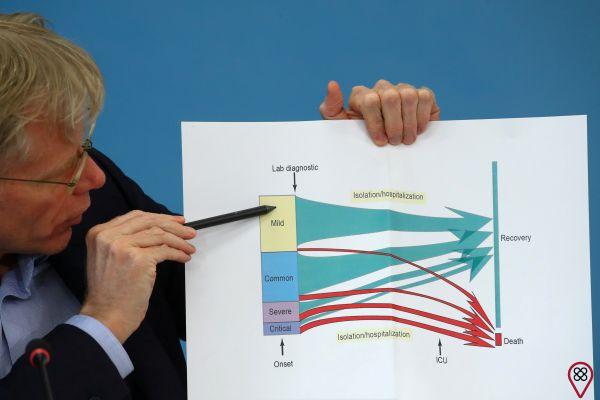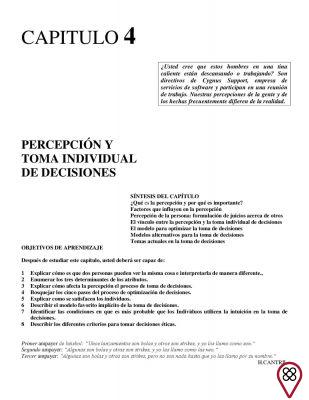Lately, the word mindset has been used a lot on social media and in the workplace. However, not all people understand the meaning of this term or how it applies to their daily lives.
If you also have doubts about this subject, know that learning about it can change the way you live life. Read carefully the content we have prepared to understand what a mindset is, what its types are, why it is important to find it and how you can develop it.
What is mindset?
Mindset is an English word that can be translated into Portuguese as mentality. That is, mindset is a set of behaviors of a person that indicates how he sees the world, how he makes decisions, how he relates to others and what he seeks for his own life.
Furthermore, a person's mindset is entirely individual. After all, everyone has their own way of seeing the world and interacting with it and there is no right or wrong way to do this. So your mindset will always be different from the mindset of those who live with you, for example, even if there are some similarities in the way you think.
Types of mindsets

Despite the diversity of ways of seeing the world, it is possible to define two main types of mindset, which branch out from the behaviors of each person who follows them. These two perspectives were defined by Carol Dweck, researcher and author of the 2017 book “Mindset: The New Psychology of Success”:
1) Fixed mindset
The first type of mindset is the fixed mindset. From this way of thinking, a person would be born with certain abilities and would have their own life defined based on them. It is this thought that is behind talent or gift, which indicate that an individual was born knowing how to do something and would not do well in other activities.
This means that the fixed mindset does not believe that it is possible to develop a new skill or that there is an effort behind what a person is capable of developing. If she does what she was meant to do when she was born, she will succeed. But if you try something new, you will fail.
2) Growth mindset
The second type of mindset is the growth mindset. Through it, an individual recognizes that he has abilities that accompany him from birth, but they are not decisive for his life. While it is possible to follow and improve them, there is also the possibility of developing in other segments.
Therefore, the growth mindset advocates that everyone can dedicate themselves to whatever they want, as long as they make the effort to do so. And even the innate skills, which seem to accompany an individual forever, must be deepened and improved over time.
Examples of mindset
Once you know the two most common types of mindsets, you can understand how they apply to your everyday life. Pay attention to the examples:
1) Relationships
In interpersonal relationships, someone who follows the fixed mindset believes that they should not compromise for other people. On the other hand, a person with a growth mindset will always be willing to listen and make adjustments if necessary.
So imagine two people who have lived together for about a year. Person X doesn't like it when Person Y interrupts her while she is talking. If person Y follows the fixed mindset, they will refuse to change, because they were born with this behavior.

But if person Y follows the growth mindset, they will make an effort to listen to person X more instead of interrupting them, because they know they are in a constant process of evolution and development.
2) Professional career
In a professional career, an individual who follows the fixed mindset will always be limited to the work he is already used to doing. However, someone who has the growth mindset will always be studying and learning more, seeking to develop in new tasks.
In this case, visualize two employees at a company who need to resolve an unexpected problem. Employee B, who follows the fixed mindset, will say that it's not worth the effort to solve something he doesn't have the aptitude for.
Employee C, however, who follows the growth mindset, will study the problem and identify where he can improve to solve it. In this way, he manages to work in more than one area because he is always open to learning.
3) Self-knowledge
In self-knowledge, a person who has a fixed mindset will believe that he does not need to improve in anything, since he was born that way and must remain that way. But an individual who follows the growth mindset will always be delving into his own essence, to improve his own qualities and minimize his own defects.
To exemplify this concept, imagine that two people are experiencing intense episodes of anger. The first one, called D, follows the fixed mindset. She considers that she doesn't need to do anything about it, because that's her essence and others should accept her that way.
At the same time, the second person, named F, practices the growth mindset. Realizing that the anger she feels is being harmful to her and others, she immediately begins to investigate ways to become a better person, solving the problem.
Benefits of finding your mindset
From the examples we present, you should already have an idea of what mindset you follow in your everyday life. If you haven’t already performed this self-knowledge exercise, understand the benefits of finding your mindset in all areas of your life:
1) Improved decision making
Your mindset is what helps you make decisions, whether for small issues or decisive moments, in your relationships or your work. So if you have a clear vision of who you are and how you face different situations, you will be able to act on them with more efficiency and satisfaction.
2) Development of future plans
When developing plans for the future, you need to understand what your life priorities are and how you intend to act in each area that composes it. Therefore, it is essential that you understand your mindset in order to perfectly define your goals and the means to achieve them.
3) Motivation to evolve
By finding your mindset, you will increase your motivation to become a better version of yourself. That's because, after this process, you should ask yourself if your mentality is favoring you, if it has brought good results to your life and how it is possible to improve it.
How to develop my mindset?
Now that you know why it's so important to find your mindset, we've separated some suggestions so you can develop it daily. Write down the tips:
1) Investigate limiting thoughts
Every mindset is based on the beliefs we have about life. Yet these beliefs cannot close our eyes to what exists beyond that. So make a constant exercise to analyze what you believe, seeking new perspectives on each topic.
2) Have the courage to take a risk
To develop your mindset, you must step out of your comfort zone. Only through this exercise will you be able to delve into what you like or what you dislike, in addition to developing in what you did not know before. So, have the courage to take the risk!
You may also like
- Find out what lifestyle is and what's yours
- Think about what success means to you
- Learn to be a successful professional in your field
3) Talk to other people
Defining a mindset based on your life reality is important. Despite this, it's important to talk to other people so you don't limit your way of seeing the world to what you experience daily. It is essential to understand other ways of experiencing reality, and only through dialogue is this possible.
From each information presented about mindset, you already know why it is so important to be aware of your mindset. Keep delving into this subject so that you are constantly changing, learning more and more about who you are!

























